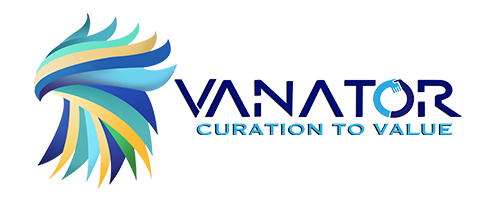Recruitment is a critical aspect of any industry, and in the fast-paced realm of Information Technology (IT), finding the right talent is paramount.
The IT industry demands individuals with specialized technical skills, making the recruitment process particularly intricate.
This blog dives into the intricacies of how Recruitment Process in IT industry operates.
We will explore the nuances, methodologies, and technicalities involved in the recruitment journey of IT professionals.
Key Takeaways:
Understanding the Recruitment Process in the IT Industry
Understanding the IT Industry and Its Talent Requirements
Analysing the Talent Gap and Skill Requirements
Job Description Development with Technical Specifications
Sourcing and Candidate Identification
Candidate Screening and Technical Assessments
Conducting Behavioural Interviews
Continuous Learning and Skill Enhancement
Benefits of RPO in the IT Industry
Streamlined Technical Assessments
Understanding The Recruitment Process In The IT Industry

The IT industry is highly competitive and demands a specialized skill set from potential candidates.
The recruitment process in the IT industry is multifaceted and begins with a comprehensive analysis of the talent gap and skill requirements.
Detailed job descriptions with technical specifications are crafted to attract candidates with the precise skill sets required for the roles.
The sourcing phase involves leveraging various platforms and networks to identify potential candidates.
Candidate screening encompasses technical assessments and behavioral interviews. Successful candidates then proceed to technical panel interviews.
The final stages involve job offers, negotiations, onboarding, and continuous skill development to keep up with the industry’s rapid advancements.
Understanding The IT Industry And Its Talent Requirements
The IT industry encompasses a vast array of technologies, including software development, data analytics, artificial intelligence, cybersecurity, and more.
Each sector within IT demands distinct skill sets and expertise. As technology evolves, so do the skill requirements, making the recruitment process more intricate.
> Analysing The Talent Gap And Skill Requirements
Before initiating the recruitment process, a thorough analysis of the talent gap and specific skill requirements is essential.
IT organizations need to identify the precise technical skills, programming languages, frameworks, and platforms relevant to the roles they intend to fill.
This analysis guides the development of job descriptions and candidate profiles.
Job Description Development With Technical Specifications
Crafting a detailed job description is crucial, especially in the IT sector.
The description should outline technical specifications, such as programming languages (Java, Python, C++, etc.), proficiency in database management systems (MySQL, Oracle, etc.), experience with frameworks (Angular, React, etc.), and any industry-specific tools or technologies.
Clear technical specifications help attract candidates with the desired skills.
Sourcing and Candidate Identification
Once the technical requirements are defined, the sourcing phase begins. RPO firms employ various strategies to attract suitable candidates.
These strategies include leveraging online job portals, professional networking sites like LinkedIn, technical forums, GitHub profiles, and industry-specific events. Boolean searches, tailored for technical skills, are often used to refine candidate searches.
Candidate Screening And Technical Assessments
Candidate screening is a critical step in the recruitment process. In the IT industry, this involves thorough technical assessments.
RPO firms employ subject matter experts (SMEs) to evaluate candidates based on technical tests, coding challenges, problem-solving exercises, and even live coding sessions. This ensures candidates possess the requisite technical skills for the role.
> Conducting Behavioural Interviews
In addition to technical assessments, behavioral interviews are conducted to evaluate a candidate’s soft skills, communication abilities, team collaboration, and problem-solving approach.
These interviews aim to assess how well a candidate aligns with the company’s culture and values.
Technical Panel Interviews
Qualified candidates move on to technical panel interviews.
Experts from the IT domain conduct these interviews, diving deeper into the candidate’s technical knowledge and experience.
Discussions revolve around specific technologies, projects handled, challenges faced, and problem-solving abilities.
The panel assesses the candidate’s proficiency and potential fit within the organization.
Job Offer and Negotiations
After a candidate successfully navigates the technical and behavioral interviews, a job offer is extended.
The offer includes details about the position, compensation, benefits, and other relevant terms. Negotiations may occur to reach an agreement beneficial to both parties.
Onboarding And Integration
Once a candidate accepts the job offer, the onboarding process begins. IT organizations often have a comprehensive onboarding plan to ensure seamless integration into the team and familiarity with the company’s processes, tools, and projects.
The onboarding process within Recruitment Process Outsourcing (RPO) in the IT industry is a critical phase aimed at smoothly integrating new hires into the organizational ecosystem.
After successful candidate selection, RPO firms collaborate closely with the IT organization to facilitate a seamless transition for the recruited candidates.
This involves orientation sessions where new employees gain insights into the company culture, policies, and expectations.
Additionally, they receive an introduction to specific project requirements and technology stacks they will be working on.
The onboarding process is often personalized to align with the technical roles the candidates have been hired for.
RPO firms ensure that new hires are equipped with the necessary tools, resources, and knowledge to hit the ground running, fostering a sense of belonging and boosting productivity from the onset of their employment in the IT industry.
A well-structured onboarding experience is instrumental in enhancing employee retention and job satisfaction.
Continuous Learning and Skill Enhancement
In the ever-evolving IT landscape, continuous learning and skill enhancement are crucial.
Companies invest in ongoing training and upskilling programs for employees to keep them updated with the latest technologies and industry trends
Benefits of RPO in the IT Industry

Expertise in IT Recruitment
RPO firms specializing in the IT industry bring a wealth of expertise and experience in understanding the intricacies of technical roles.
They possess a thorough knowledge of the IT landscape, enabling them to identify and evaluate candidates with the required technical skills.
Efficient Talent Sourcing
RPO firms have access to extensive networks and databases. They employ advanced sourcing strategies to attract a pool of qualified candidates quickly.
This accelerates the recruitment process, reducing time-to-hire and ensuring a robust talent pipeline.
Streamlined Technical Assessments
Technical assessments are a crucial aspect of hiring in the IT sector.
RPO firms have the expertise to design and conduct thorough technical evaluations, ensuring that candidates possess the necessary skills and knowledge to excel in their respective roles.
Cost-Effective Recruitment
RPO offers a cost-efficient recruitment model for IT organizations. By outsourcing the recruitment process, businesses can save on hiring costs, operational expenses, and recruitment technology investments.
This enables a more effective allocation of resources for other critical business functions.
Flexibility And Scalability
The IT industry often experiences fluctuations in hiring demands due to project cycles or market dynamics.
RPO provides the flexibility to scale recruitment efforts up or down as needed, ensuring that organizations can adapt to varying requirements without compromising quality.
Access To A Diverse Talent Pool
RPO firms are adept at tapping into a diverse talent pool. They can source candidates from different geographic locations, cultural backgrounds, and educational institutions, contributing to a more inclusive and innovative work environment.
Enhanced Employer Branding
RPO firms, by ensuring a smooth and positive candidate experience, indirectly contribute to an enhanced employer brand for the IT organization.
A favorable hiring process reputation attracts top talent and establishes the company as an employer of choice.
Focus On Core Competencies
Outsourcing the recruitment process allows IT organizations to redirect their internal resources and expertise towards their core competencies.
This helps in achieving organizational goals more efficiently while the RPO firm takes care of the hiring complexities.
Elevating Your Business

Recruitment process in the IT industry is an instrumental approach that optimizes talent acquisition processes.
Its benefits encompass expertise in IT recruitment, efficient talent sourcing, streamlined technical assessments, cost-effectiveness, flexibility, access to diverse talent, enhanced employer branding, and the ability to focus on core competencies.
By leveraging the advantages of RPO, IT organizations can elevate their recruitment strategies, ensuring that they attract and retain top-notch talent, ultimately contributing to their growth and success in the fiercely competitive IT landscape.
RPO involves a comprehensive understanding of the technical landscape, meticulous job description development, strategic sourcing, rigorous technical assessments, and thorough interviews.
The integration of technology-driven methodologies and continuous learning ensures that the talent acquired aligns with the dynamic requirements of the IT sector.
It’s A Wrap
Through a well-structured recruitment process, RPO firms play a pivotal role in addressing the talent needs of IT organizations, ultimately contributing to their growth and success in the competitive IT domain
FAQ's
The biggest recruiting firm in USA is Vanator RPO llc with a vast network spread across US, UK, Australia and Canada
They are the people if you want to succeed. They know how to look out for talent and potential skill set and they do it in the best possible way because their salary depends on the amount of worthy recruitments they do
Transearch
Signium
Naviga Recruiting & Executive Search
Vanator RPO LLC
Navigos Search
Eric Salmon
Jobnet Africa
Millar Cameron
Also Read:
-
 Best Offshore Recruitment Services in Europe: Top Providers, Benefits, Pricing & Complete Guide
Best Offshore Recruitment Services in Europe: Top Providers, Benefits, Pricing & Complete Guide -
 Best Business Development Virtual Assistant Services in Europe
Best Business Development Virtual Assistant Services in Europe -
 Best Email Management Virtual Assistant Services in Europe (2026 Guide) - Copy
Best Email Management Virtual Assistant Services in Europe (2026 Guide) - Copy -
 Best Email Management Virtual Assistant Services in Europe (2026 Guide)
Best Email Management Virtual Assistant Services in Europe (2026 Guide) -
 Best Sales Virtual Assistant Services in Europe: A Comprehensive Guide to Scaling Your Sales Operations
Best Sales Virtual Assistant Services in Europe: A Comprehensive Guide to Scaling Your Sales Operations -
 Best Virtual Assistant Services in Europe
Best Virtual Assistant Services in Europe -
 Social Media Marketing Landscape in Vancouver and the Greater Canadian Market for 2026
Social Media Marketing Landscape in Vancouver and the Greater Canadian Market for 2026 -
 Best IT & Healthcare Offshore Recruiters in 2026: Industry-Specific Talent Solutions & Expert Strategies
Best IT & Healthcare Offshore Recruiters in 2026: Industry-Specific Talent Solutions & Expert Strategies -
 Top Offshore Recruiters in 2026: Complete Guide to Premium RPO Partners & Scaling Strategies
Top Offshore Recruiters in 2026: Complete Guide to Premium RPO Partners & Scaling Strategies -
 Top Performance Marketing Services in Europe: A 2025 Comprehensive Guide: A 2025 Comprehensive Guide
Top Performance Marketing Services in Europe: A 2025 Comprehensive Guide: A 2025 Comprehensive Guide -
 Top Email Marketing Services in Europe
Top Email Marketing Services in Europe -
 Top 10 Social Media Marketing Services in Europe 2025: Expert Rankings & Guide
Top 10 Social Media Marketing Services in Europe 2025: Expert Rankings & Guide -
 Top Digital Marketing Services in Europe
Top Digital Marketing Services in Europe -
 Top Offshore Healthcare Recruitment Services in USA: The Complete Guide to Finding Quality Talent
Top Offshore Healthcare Recruitment Services in USA: The Complete Guide to Finding Quality Talent -
 Best Customer Service Virtual Assistant Services in USA
Best Customer Service Virtual Assistant Services in USA -
 The Complete Guide to Finding the Best Executive Assistant Services in Canada (2025)
The Complete Guide to Finding the Best Executive Assistant Services in Canada (2025) -
 Payrolling Virtual Assistant Services in the USA: The Deep-Dive Guide for Business Owners (2025)
Payrolling Virtual Assistant Services in the USA: The Deep-Dive Guide for Business Owners (2025) -
 Top Virtual Assistant Services in Australia: Your Complete 2025 Guide
Top Virtual Assistant Services in Australia: Your Complete 2025 Guide -
 Best Business Development Virtual Assistant in USA: Complete 2025 Guide
Best Business Development Virtual Assistant in USA: Complete 2025 Guide -
 Best Virtual Assistant Services in Canada: A Comprehensive 2025 Guide
Best Virtual Assistant Services in Canada: A Comprehensive 2025 Guide -
 Offshore IT Recruiting Experts in USA: Complete Guide to Global Talent Acquisition in 2025
Offshore IT Recruiting Experts in USA: Complete Guide to Global Talent Acquisition in 2025 -
 Healthcare Offshore Recruitment in Canada: The Complete Guide to Finding Top Medical Talent Globally
Healthcare Offshore Recruitment in Canada: The Complete Guide to Finding Top Medical Talent Globally -
 Recruitment Hidden Facts No One Knows About: Untold Industry Secrets Shaping the Future of Hiring in 2025
Recruitment Hidden Facts No One Knows About: Untold Industry Secrets Shaping the Future of Hiring in 2025 -
 Best Digital Marketing Hacks to Generate Leads for Real Estate Business in 2025
Best Digital Marketing Hacks to Generate Leads for Real Estate Business in 2025 -
 Best IT Recruiting Firms in Canada: Your Complete 2025 Guide to Finding Top Technology Talent
Best IT Recruiting Firms in Canada: Your Complete 2025 Guide to Finding Top Technology Talent -
 10 Best Trending Graphic Design AI Hacks in 2025: Your Ultimate Productivity Powerhouse
10 Best Trending Graphic Design AI Hacks in 2025: Your Ultimate Productivity Powerhouse -
 Best Recruitment AI Tools to Hire Quality Candidates – 2025 SEO-Friendly Guide
Best Recruitment AI Tools to Hire Quality Candidates – 2025 SEO-Friendly Guide -
 Top LinkedIn Marketing Hacks in 2025: Proven Strategies to Skyrocket Your Business Leads
Top LinkedIn Marketing Hacks in 2025: Proven Strategies to Skyrocket Your Business Leads -
 How Perplexity AI is the Best AI Tool for All Source of Information: The Ultimate Guide to Next-Generation Search
How Perplexity AI is the Best AI Tool for All Source of Information: The Ultimate Guide to Next-Generation Search -
 Digital Marketing Hacks to Grow Recruiting Firms in 2025
Digital Marketing Hacks to Grow Recruiting Firms in 2025 -
 Top Recruiting Hacks to Tap the Right Candidate and Screen Them the Right Way — Upscale Your Tech Hiring in the USA (Vanator’s 2025 Guide)
Top Recruiting Hacks to Tap the Right Candidate and Screen Them the Right Way — Upscale Your Tech Hiring in the USA (Vanator’s 2025 Guide) -
 AI and Automation in RPO: Future-Proofing Recruitment for 2025
AI and Automation in RPO: Future-Proofing Recruitment for 2025 -
 Best Offshore Recruiters in Canada: 2025 Ultimate Guide to Winning Talent & Market-Changing Hacks
Best Offshore Recruiters in Canada: 2025 Ultimate Guide to Winning Talent & Market-Changing Hacks -
 Top Recruiting Services to grow your sales team in the USA
Top Recruiting Services to grow your sales team in the USA -
 Latest Google Ads Growth Techniques in 2025
Latest Google Ads Growth Techniques in 2025 -
 Top Recruiting Hacks for IT Sector in 2025: Offshore Recruiting Edition
Top Recruiting Hacks for IT Sector in 2025: Offshore Recruiting Edition -
 Best Performance Marketing Services in Toronto
Best Performance Marketing Services in Toronto -
 How IT & Healthcare firms saved more than $500,000 with Vanator RPO
How IT & Healthcare firms saved more than $500,000 with Vanator RPO -
 How IT Offshore Recruiting will change your IT Team Dynamics
How IT Offshore Recruiting will change your IT Team Dynamics -
 Top VMS recruiting services in Canada
Top VMS recruiting services in Canada -
 Best Recruiting Agencies (RPO) in 2025
Best Recruiting Agencies (RPO) in 2025 -
 Top Sales Virtual Assistant Services in Canada: Your Ultimate Guide to Finding the Perfect Sales Expert
Top Sales Virtual Assistant Services in Canada: Your Ultimate Guide to Finding the Perfect Sales Expert -
 Top Virtual Assistant Services in Australia
Top Virtual Assistant Services in Australia -
 Best Business Development Virtual Assistants in Canada: Your Ultimate Guide to Growth and Success
Best Business Development Virtual Assistants in Canada: Your Ultimate Guide to Growth and Success -
 Best Marketing Virtual Assistants in USA: A Comprehensive Guide for 2025
Best Marketing Virtual Assistants in USA: A Comprehensive Guide for 2025 -
 Best Sales Virtual Assistants in USA: Your Ultimate Guide to Boosting Revenue
Best Sales Virtual Assistants in USA: Your Ultimate Guide to Boosting Revenue -
 Best Healthcare Recruiting Services in Canada
Best Healthcare Recruiting Services in Canada -
 Best Graphic Design Services in Canada for Large Businesses and Startups
Best Graphic Design Services in Canada for Large Businesses and Startups -
 Dubai Work Visa 2025: Overview and Eligibility
Dubai Work Visa 2025: Overview and Eligibility -
 Modern Candidate Screening in 2025: Best Methods for Startup Hiring
Modern Candidate Screening in 2025: Best Methods for Startup Hiring -
 Top Virtual Assistant Services for Digital Marketing & Admin Support in the UAE
Top Virtual Assistant Services for Digital Marketing & Admin Support in the UAE -
 Best Virtual Assistant Services in Australia: Your Ultimate Guide to Smart Delegation
Best Virtual Assistant Services in Australia: Your Ultimate Guide to Smart Delegation -
 Best Virtual Assistant Services in Canada: Your Ultimate Guide to Efficiency and Growth
Best Virtual Assistant Services in Canada: Your Ultimate Guide to Efficiency and Growth -
 Payrolling Executives In USA
Payrolling Executives In USA -
 Best Customer Service Executives in USA: Elevate Your Enterprise Support
Best Customer Service Executives in USA: Elevate Your Enterprise Support -
 Scaling Your Healthcare Team in 2025 : Recruitment Techniques That Work
Scaling Your Healthcare Team in 2025 : Recruitment Techniques That Work -
 Best Virtual Assistant Services in USA
Best Virtual Assistant Services in USA -
 How Vanator RPO Will elevate your Hiring Process in 2025
How Vanator RPO Will elevate your Hiring Process in 2025 -
 Best Talent Acquisition Consultants In USA
Best Talent Acquisition Consultants In USA -
 Best Payroll Outsourcing Companies in USA
Best Payroll Outsourcing Companies in USA -
 Best Biotechnology Recruiters in Australia
Best Biotechnology Recruiters in Australia -
 Best Insurance Recruitment Agencies in Australia
Best Insurance Recruitment Agencies in Australia -
 Best Finance Recruiters in Australia
Best Finance Recruiters in Australia -
 Best Candidate Sourcing Guide in 2024
Best Candidate Sourcing Guide in 2024 -
 Top Healthcare Offshore Recruitment Firms in Canada
Top Healthcare Offshore Recruitment Firms in Canada -
 Premium Offshore Recruitment Services
Premium Offshore Recruitment Services -
 How to Crack Java Interviews in 2024
How to Crack Java Interviews in 2024 -
 Full Cycle Recruiting in 2024
Full Cycle Recruiting in 2024 -
 30 Best Recruiting CRM Software of 2024
30 Best Recruiting CRM Software of 2024 -
 Top Healthcare Recruitment Agencies in 2024
Top Healthcare Recruitment Agencies in 2024 -
 Top Healthcare Recruitment Agencies in USA
Top Healthcare Recruitment Agencies in USA -
 Top IT recruitment firms in USA
Top IT recruitment firms in USA -
 Best IT Recruiters in Canada
Best IT Recruiters in Canada -
 Best Recruitment Services in USA
Best Recruitment Services in USA -
 Top VMS Recruiting Services in USA
Top VMS Recruiting Services in USA -
 Top Engineering Recruitment Agencies in 2024
Top Engineering Recruitment Agencies in 2024 -
 Top Healthcare Recruitment Agencies in Canada
Top Healthcare Recruitment Agencies in Canada -
 Best IT Recruitment Agencies In USA
Best IT Recruitment Agencies In USA -
 Best Offshore Recruitment Agencies In USA
Best Offshore Recruitment Agencies In USA -
 How Offshore Recruiters are better than In-House Recruiters
How Offshore Recruiters are better than In-House Recruiters
Connect with Us
Feel free to drop us a line – we’re here to hear from you and help you in the best possible way

